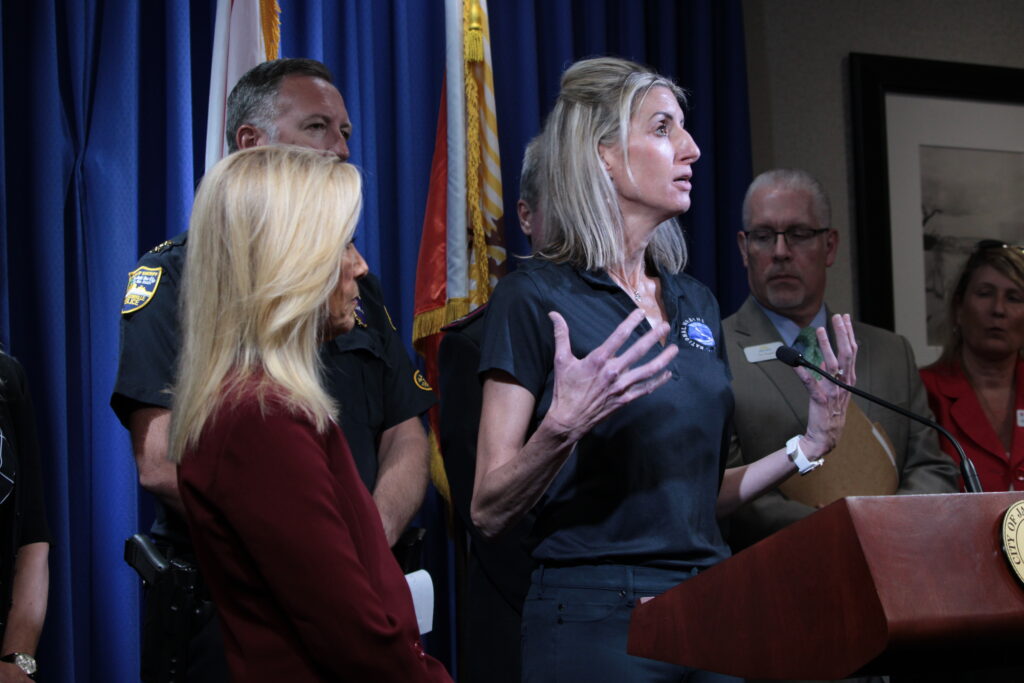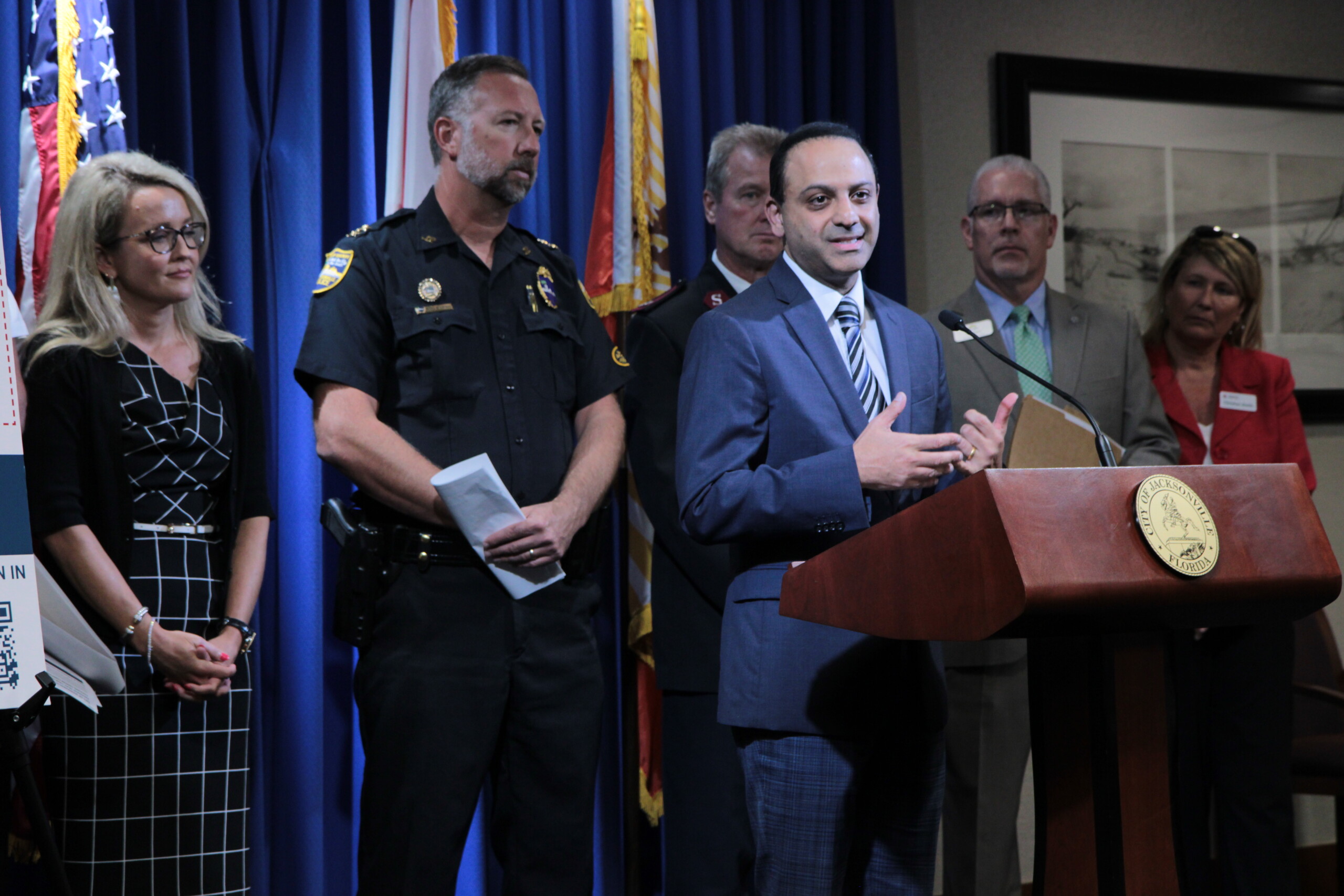Anyone who has stepped outdoors in the Jacksonville area recently can tell you — the heat has been brutal. But while many residents can escape the extreme and oppressive weather, others can’t.
Soon, though, locals can expect to find a safe haven from the sweltering midday sun if temps threaten their safety.
On Monday, Mayor Donna Deegan, together with her recently created Heat Task Force, announced a new policy at City Hall: the Excessive Heat Incident Plan.
The plan calls for using Jacksonville Transportation Authority buses, city libraries and community centers as cooling centers, using their air conditioning to allow those with no other access to find respite from heat that experts warn is increasingly common and becoming a more significant threat.
“It’s incredibly important what we’re doing today,” the mayor says. “I think it’s gonna go a long way towards keeping people safer.”
The six centers — one in the urban core, one on the Northside, one on the northwest area, one in Arlington, one at the beaches and one on the west side — will open if the National Weather Service forecasts a heat emergency. That means when heat indexes — otherwise known as “feels-like temperatures” — are expected to be between 108 and 112 degrees for three consecutive days or when the index is expected to top 113 degrees for one day.
When a forecast like that is issued, the Emergency Preparedness Division will open the cooling centers on the necessary days, from noon to 6 p.m. Monday through Saturday, says Jacksonville Fire and Rescue Division Chief Keith Powers.
Powers shared the planned cooling center locations:
- Legends Center and Gymnasium, 5130 Soutel Drive, Jacksonville.
- Highlands Regional Library, 1826 Dunn Ave, Jacksonville.
- University Park Branch Library, 3435 University Blvd N, Jacksonville.
- Jacksonville Main Library, 303 N. Laura St, Jacksonville.
- Beaches Branch Library, 600 3rd St., Neptune Beach.
- Charles Webb Wesconnett Regional Library, 6887 103rd St., Jacksonville.
The fire chief says that if cooling centers are required on a Sunday, there will be JTA cooling buses at the Legends Center and the Main Library Downtown. He adds that each center will be staffed with one person from the facility and either a Red Cross or Salvation Army volunteer or fire department personnel, while the Jacksonville Sheriff’s Office is set to provide security.
Powers also says that on days when the cooling centers are activated, JTA will provide complimentary transport to anyone heading to one of the centers.
He also cautions bedridden residents or those suffering extreme symptoms to call 911, rather than head to a center.
“Let me remind everyone,” Powers said, “Do not go to the cooling centers if you’re experiencing any of the following symptoms: cramps, headache, nausea, fatigue, dizziness or lightheadedness. If you’re experiencing any of that, call 911.”
Asked about how cooling center information will be shared with those who may not have access to the internet or other technology, Deegan says the local groups Downtown Vision and Changing Homelessness are expected to help get the word out.

Deegan points to the large group of people in the conference room, from the National Weather Service to the city’s library service Division, JTA and Red Cross, as well as others.
“You can see that we’ve got a lot of community partners that are very motivated to solve this problem,” Deegan says. “We’ll be getting the word out.”
Andre Ayoub, director of the Emergency Preparedness Division, says the initiative took about two weeks to come together and he feels the city’s communication plan is robust.
“We want to make sure every segment of our community, every citizen, has that information,” Ayoub says.
Dr. Sunil Joshi, the city’s chief health officer, said while heat has been an “inconvenience” for Jaxons for a long time, the issue has advanced to a public health emergency.
For some perspective, Joshi says, the national Centers for Disease Control and Prevention tracks hospital visits related to heat across the country.
In the southeast region of the US, from July 16 to July 23 in 2021, there was an average of about 170 heat related illnesses for every 100,000 visits to the emergency room.
“In 2023, there was 406,” Joshi says. “So we’re two and a half times where we were just two years ago with people going into the emergency room using our health care system for heat related illnesses. So something had to be done. … This is not something that we expect to deal with on a regular basis and do nothing about.”







